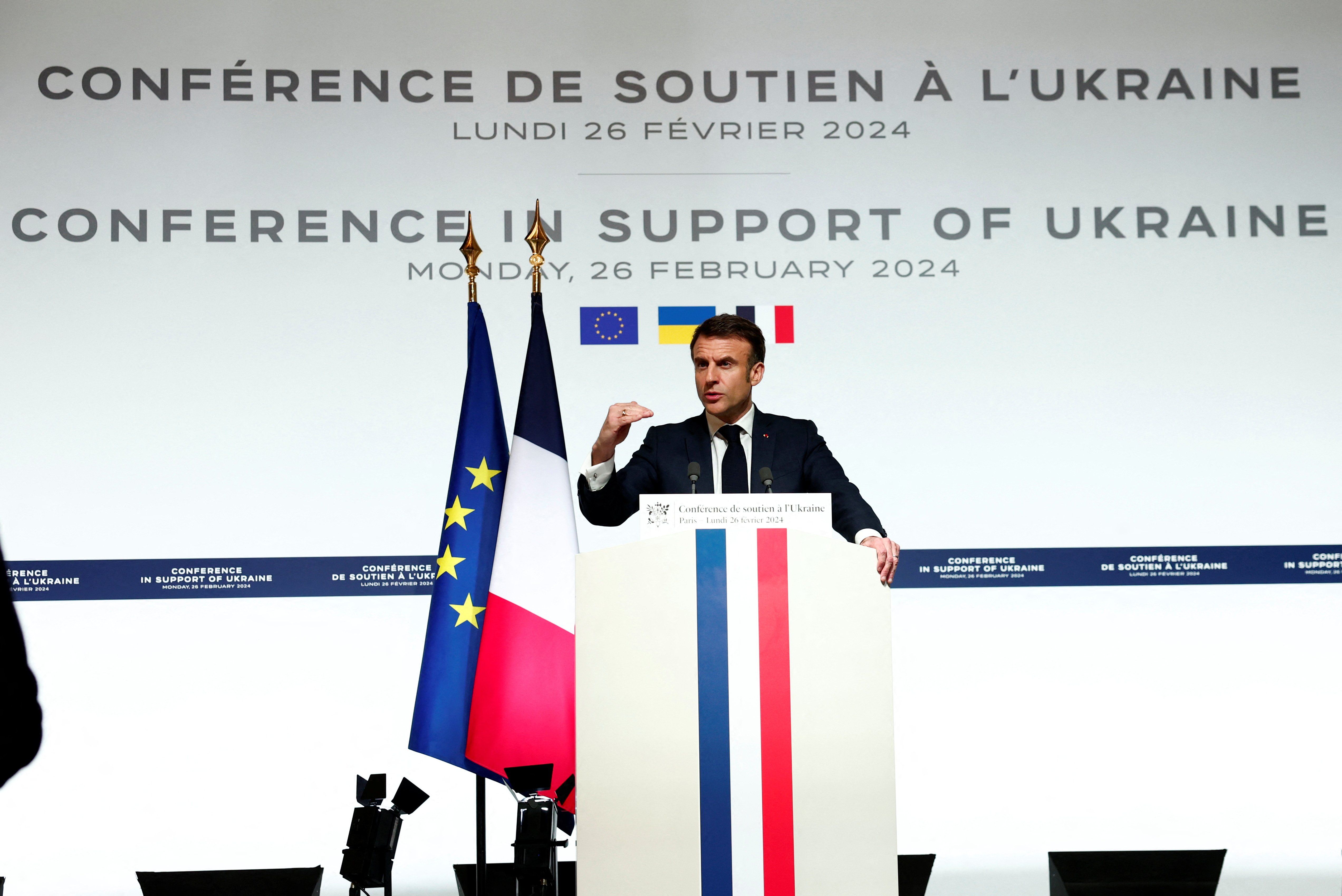Is French President Emmanuel Macron crazy or just bluffing? It’s a question geopolitics experts are confronting after he suggested Monday that sending Western troops into Ukraine to fight against Russia shouldn’t be “ruled out.”
Ukraine seemed to welcome the suggestion of possible European intervention – hardly surprising given Kyiv’s many challenges at this stage of the war.
But Moscow quickly warned that would inevitably lead to a direct confrontation between Russia and NATO. Germany and Poland on Tuesday also pooh-poohed Marcron’s idea.
Would this actually happen? It’s extremely unlikely that any Western countries will put boots on the ground in Ukraine. No one wants a conflict between nuclear-armed powers.
So Why did Macron say this? According to a thread on X by Eurasia Group’s Europe Director Mujtaba Rahman, French sources said Macron’s comments were meant “to reassure Ukraine” and serve as “words of warning to Vladimir Putin.”
Our take: Macron likes to stand out on the global stage, for better or worse. He took a lot of flak for seeming too friendly to Putin early in the war. Making a non-starter threat like this enables him to look tough, without actually having to back it up. Trés shrewd, Emmanuel.
